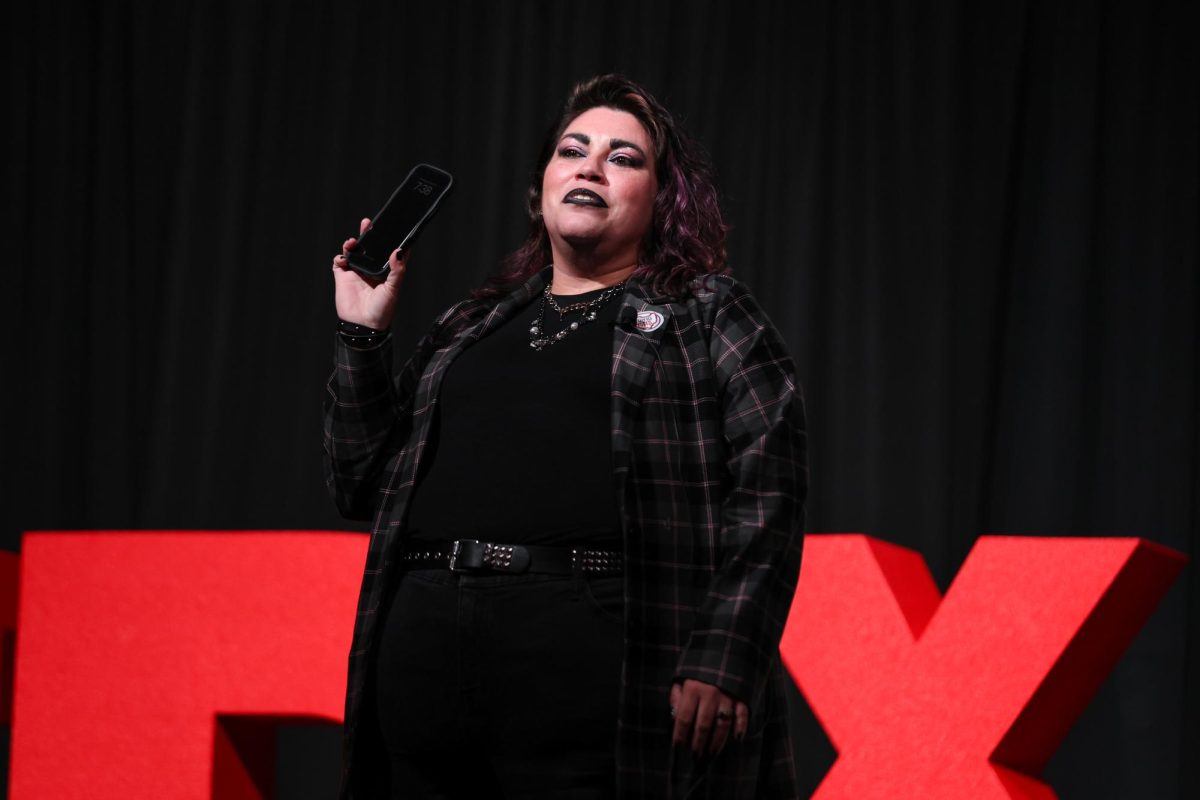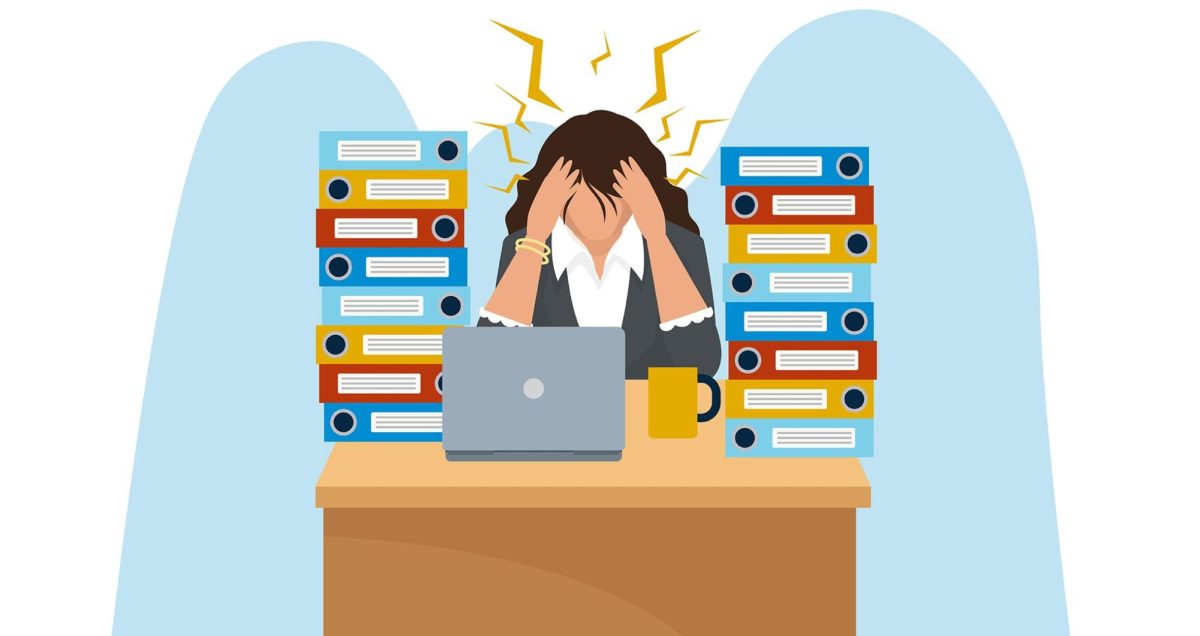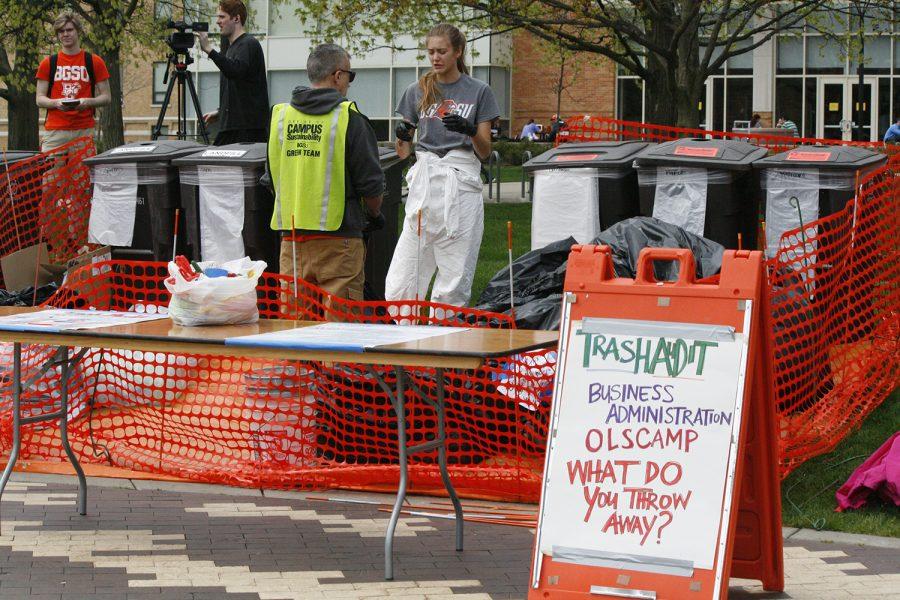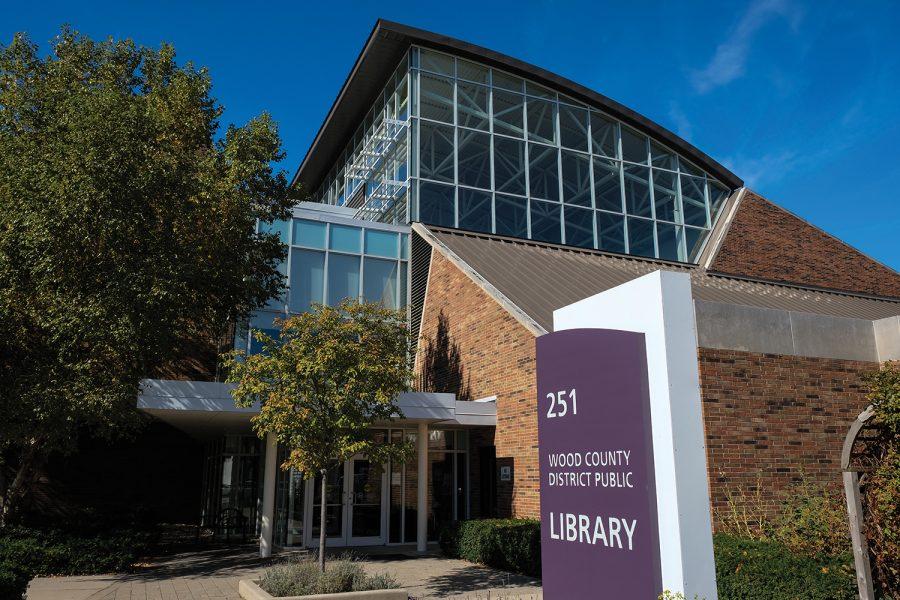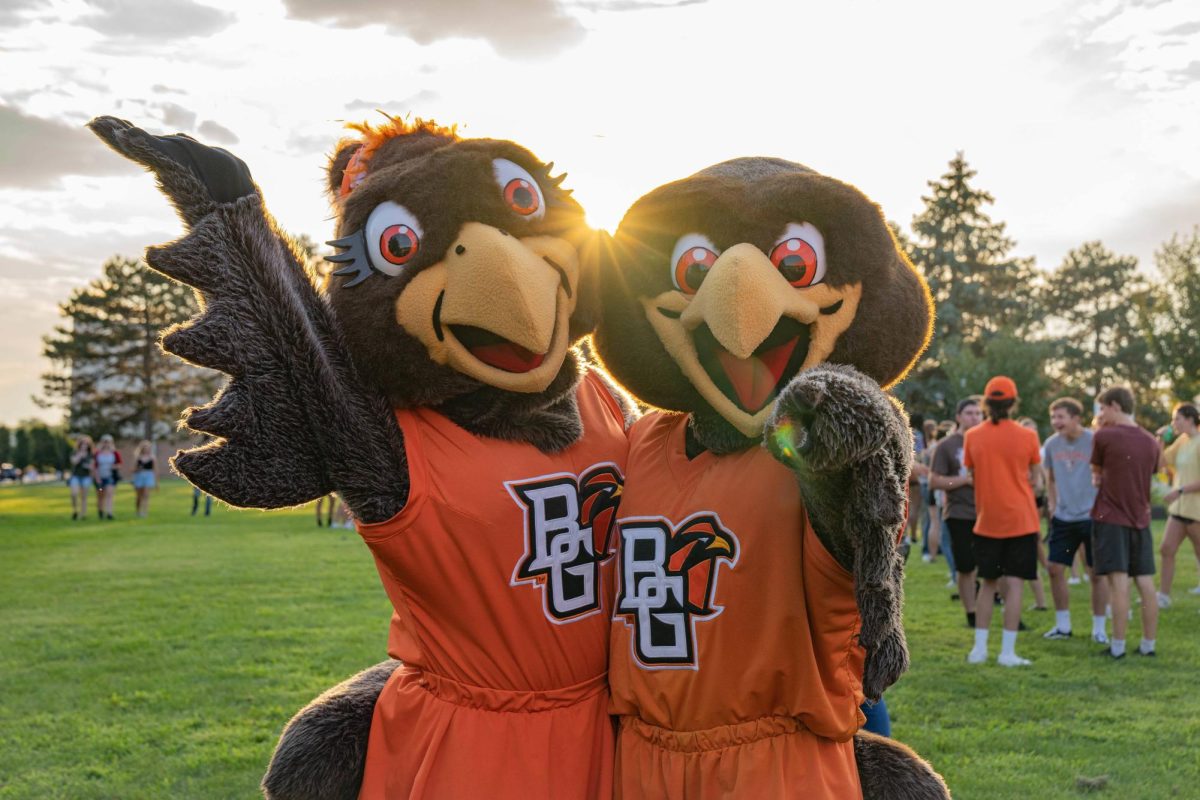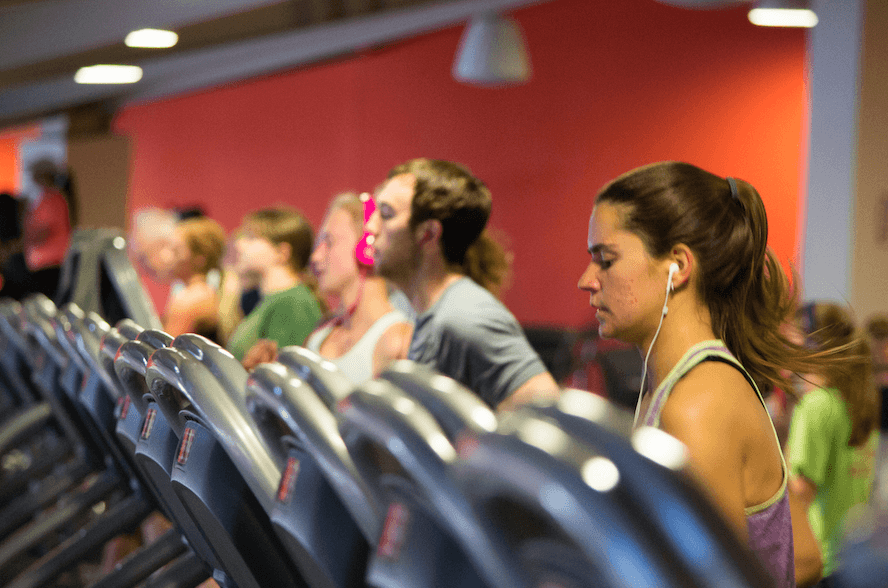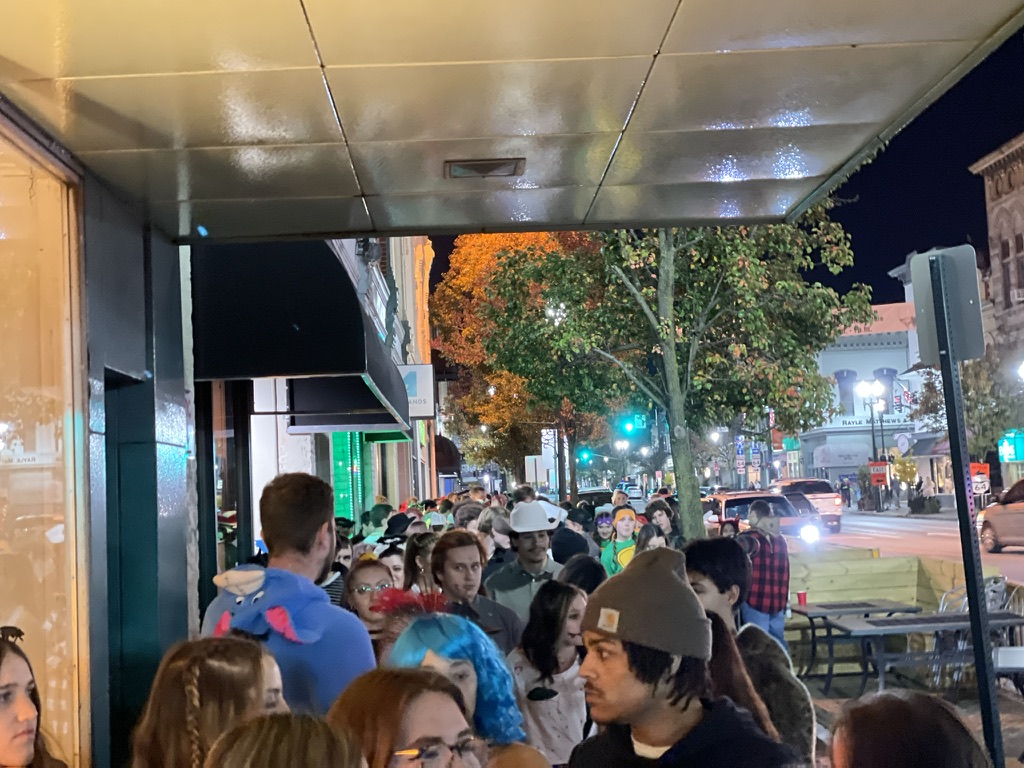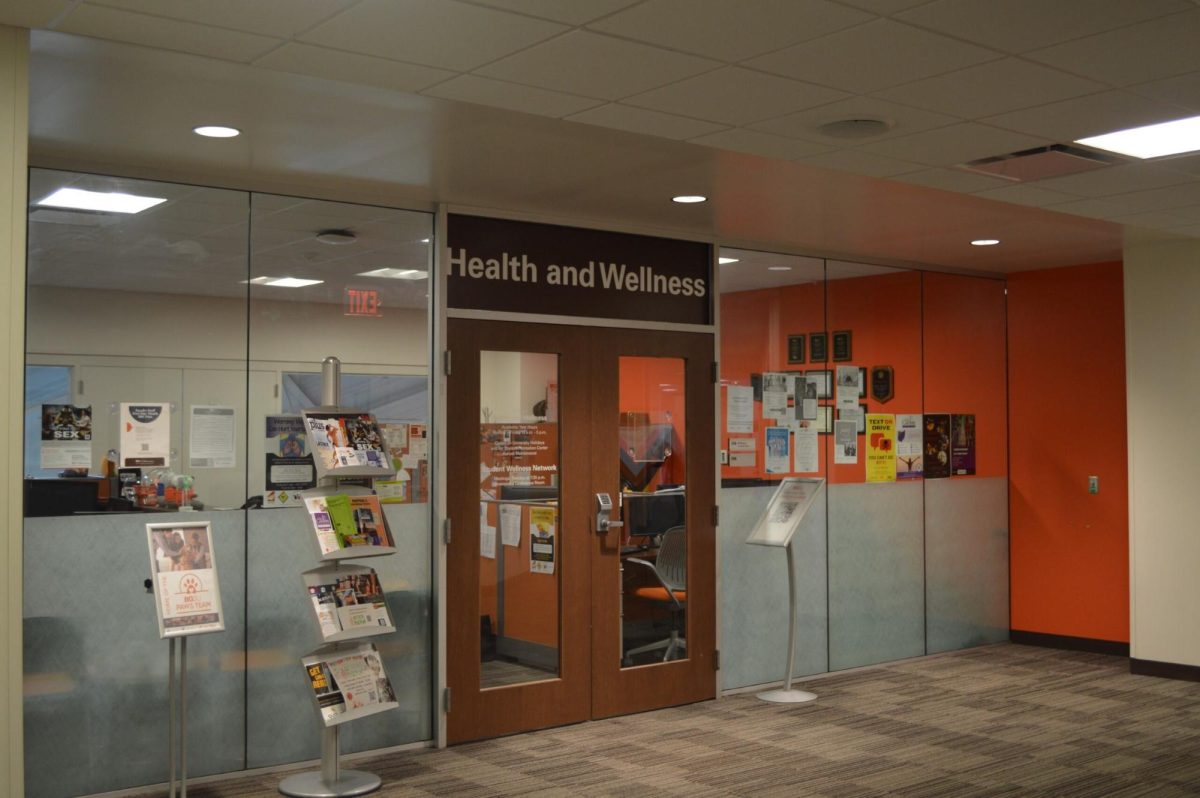With the date of the 2024 Presidential Election growing closer every day, Amanda Paniagua, M.Ed., said she knows better than most that education is a key factor in the perception of what democracy really is. On Oct. 10, in partnership with TEDxBGSU, she gave a personal account of times when education gave her a new perspective.
“I was born and raised in rural Northwest Ohio. My ancestors came from Central America and Spain, so growing up I was surrounded by vibrant music, language and self-expression,” she said.
Painting pictures of her childhood and growing up in a culturally immersed household, while also living in a town that held her back from being her true self. She found the idea of her life after high school to be something of a dream, rather than something real.
“While they both encouraged education, neither of my parents had experience with college or university. So, college to me, at best, was a dream, and at worst, was out of the question,” said Paniagua.
Her experience here is one that happens often around the United States, high school students who just do not see higher education in their future. In a 2024 article published by Third Way, it was found that “89% of students said cost was “very important” or “somewhat important” in deciding whether to attend a four-year program. Almost one-third of students polled (29%) either are not considering a four-year degree at all or want to pursue a four-year degree but view the cost as such a barrier that they don’t consider it an option,” said Ben Cecil, Ph.D.
With college up in the air, Paniagua’s high school counselor set her up to go on an overnight, diversity recruiting event at a nearby college.
“When we arrived, I began to feel very overwhelmed and self-conscious. I realized this was the first time in my life that I was interacting with someone from the Black community. I did something vulnerable; I started asking questions,” said Paniagua.
She then took time to tell the story of her roommate at the overnight college tour experience and how she changed Paniagua’s life for the better.
“I was grateful that she held space for me. She helped educate me in a different way than ever before,” she said.
With this experience, Paniagua grew into the woman she is today, she continued to keep an open mind on what education can look like and how it can come from many places, not just a classroom.
“At their best, higher education institutions function as an incubator for our democracy. In an ideal situation, it brings people from across generations and all backgrounds to interact and be in community with one another, while we try and solve the world’s problems,” said Paniagua.
Mariah Hahn, a second-year student majoring in Health Science Pre-Med at Bowling Green State University [BGSU] also attended the event and heard Paniagua’s testimony to democracy.
“Amanda’s speech deeply reminded me of the vital importance of communicating with those around us, especially with people who may not look like us. Engaging in these conversations helps us broaden our perspectives and remain open-minded,” said Hahn.
Along with Hahn, CC Hampton, a third-year student majoring in Politics, Philosophy, Economics, and Law was also in attendance and was able to connect with Paniagua’s speech.
“It was really important for me to hear that it is OK to be ignorant about things, and it’s OK for other people to be ignorant because it’s part of being a human,” said Hampton. “I definitely think her speech taught me to think more humanely about people on the opposite side of my beliefs, which I feel like can be hard to do in such a polarized society,” she said.
In this new age of politics, with democracy at the forefront of headlines, education is being spread wherever, whenever. Paniagua spoke about the necessity of humanity’s democratization within the information age we live in.


